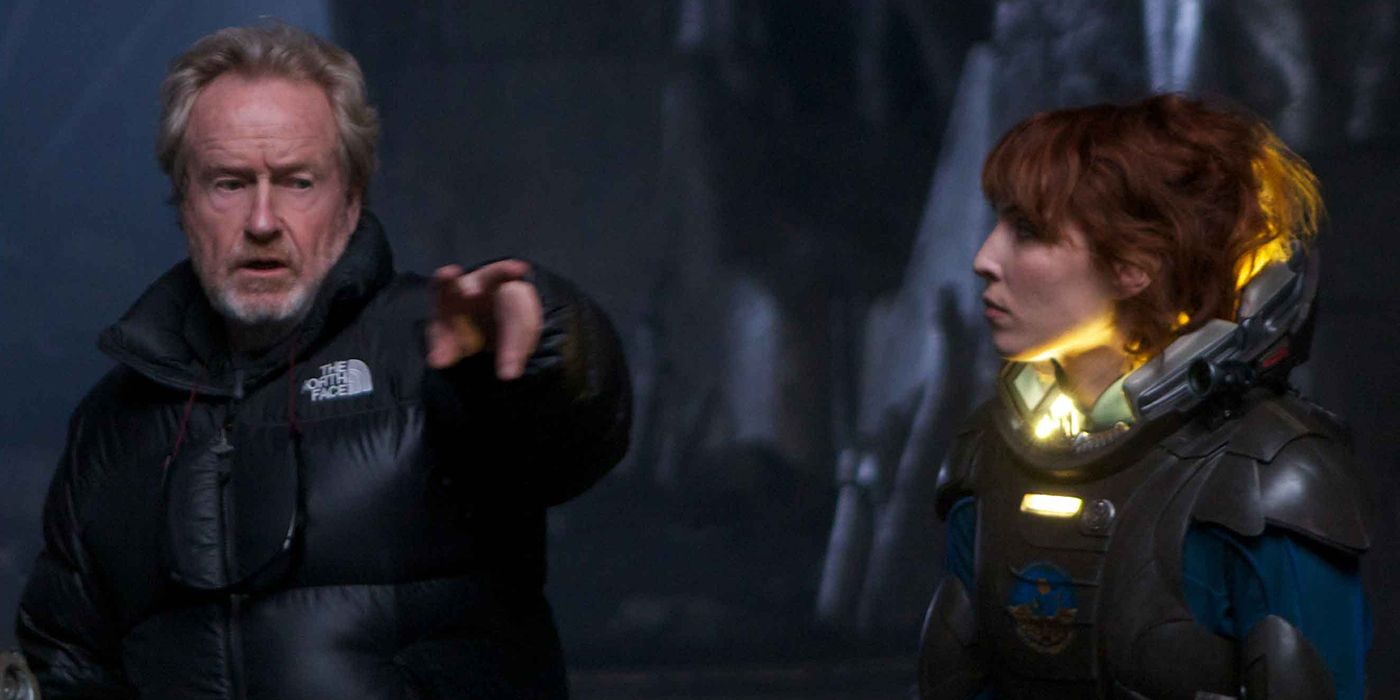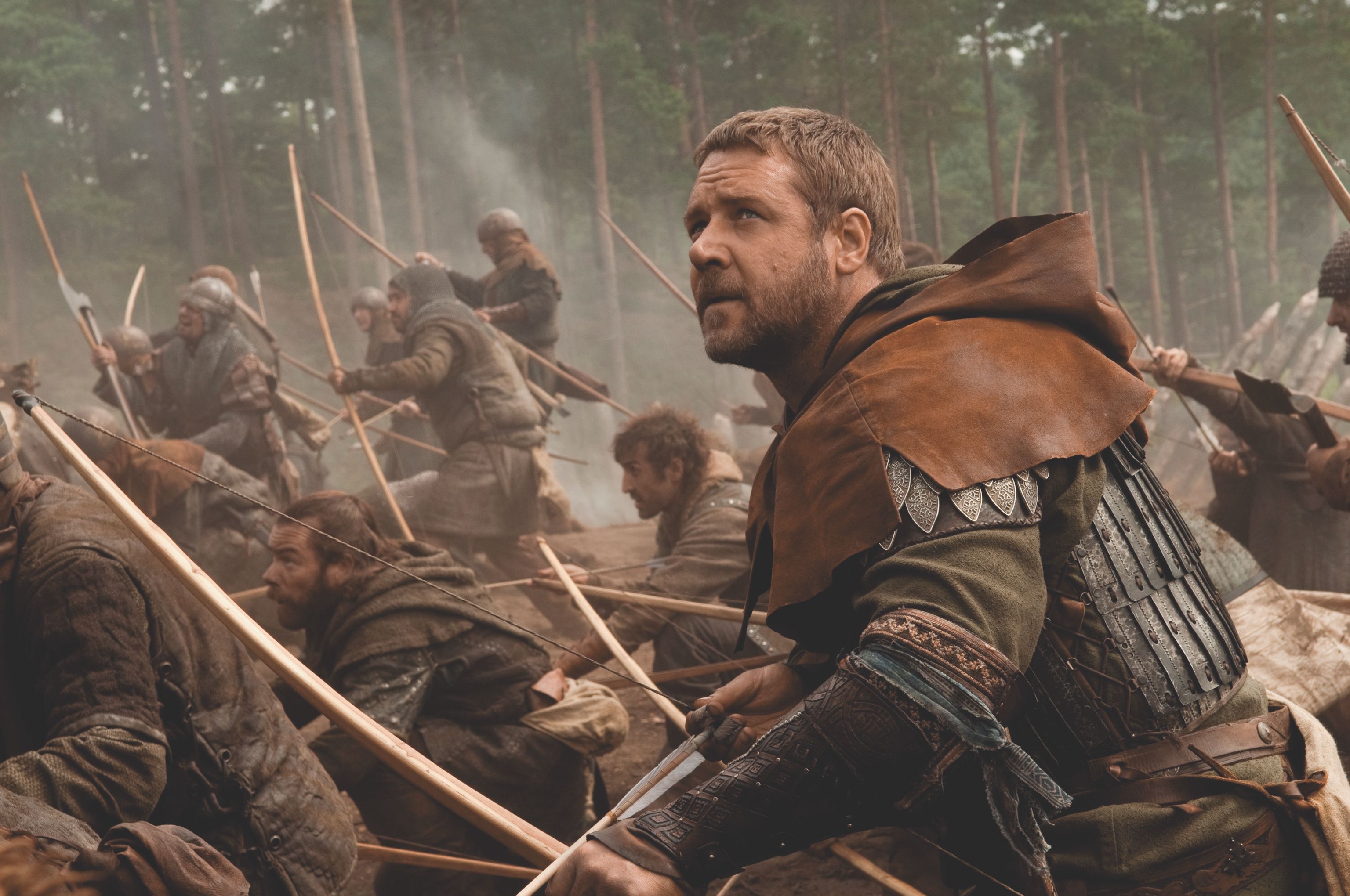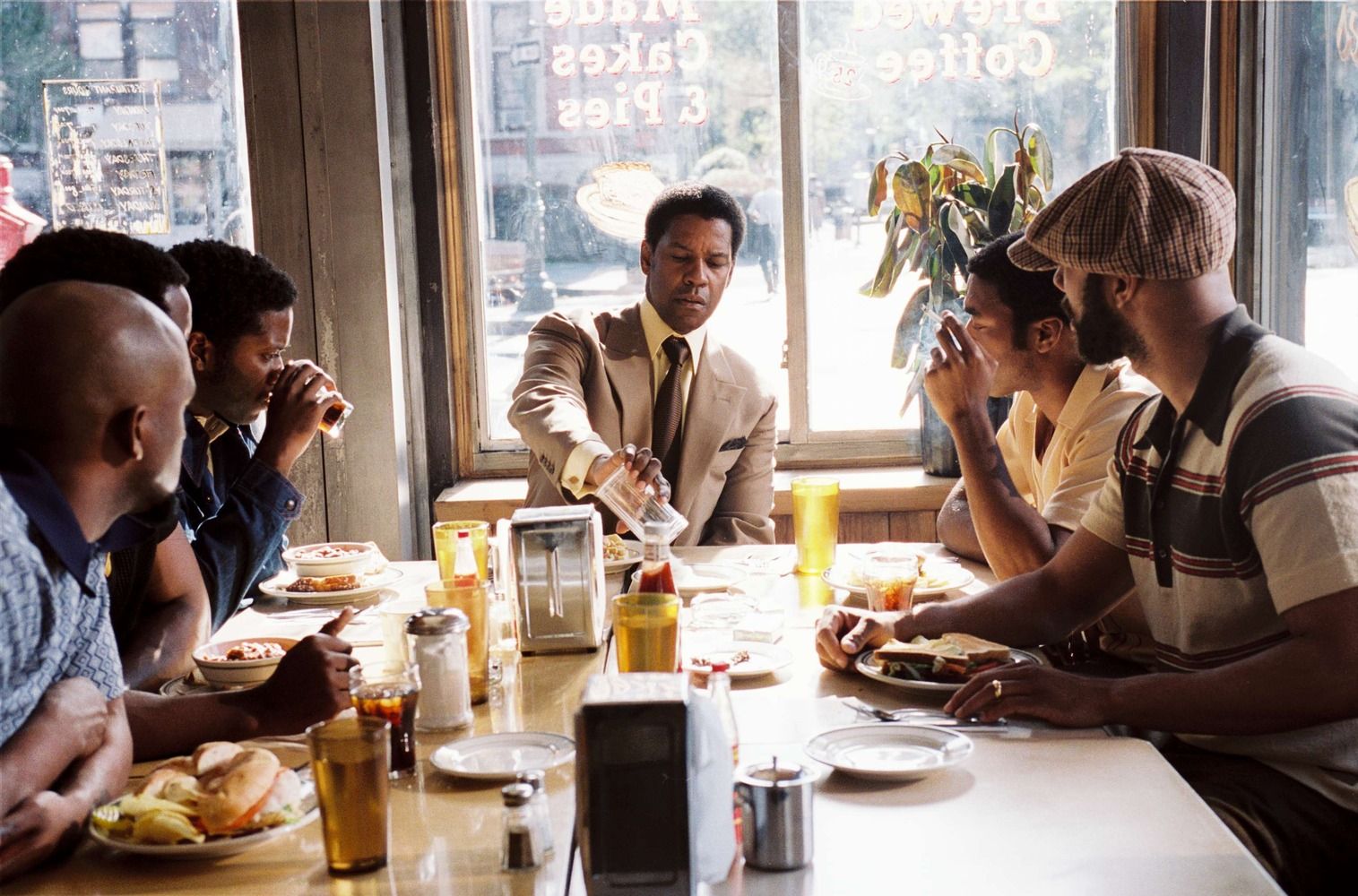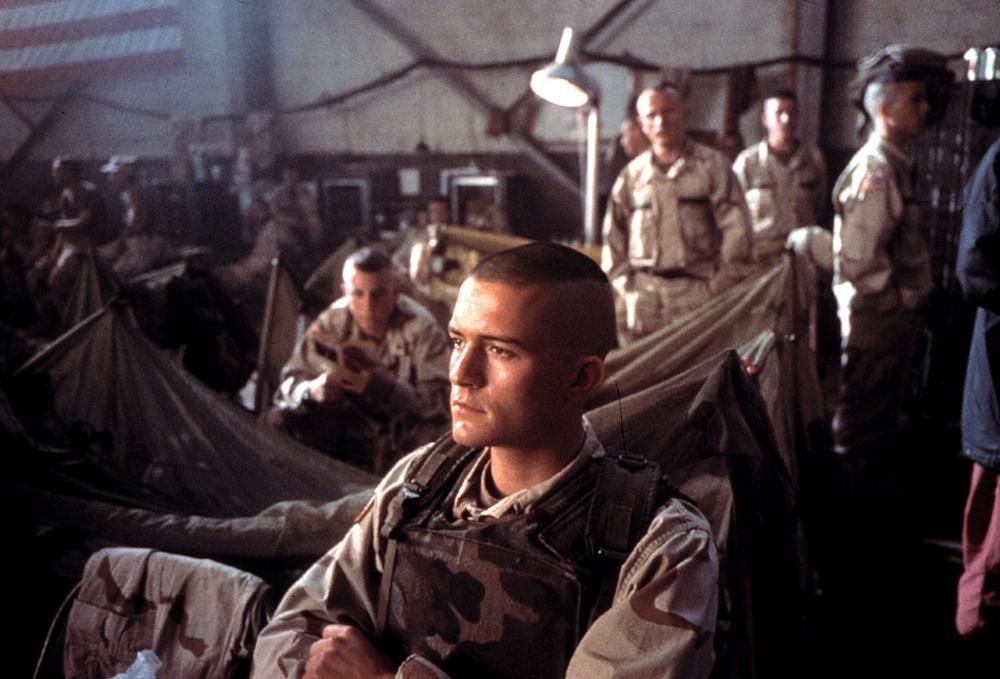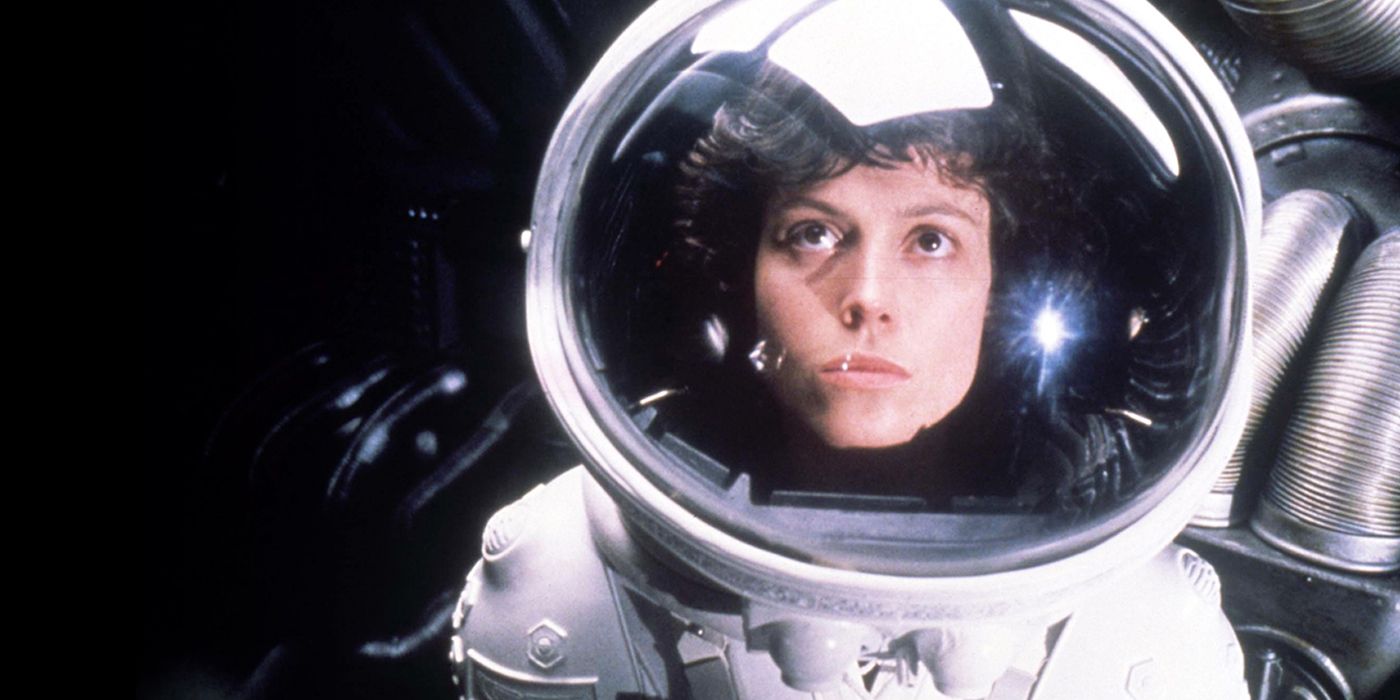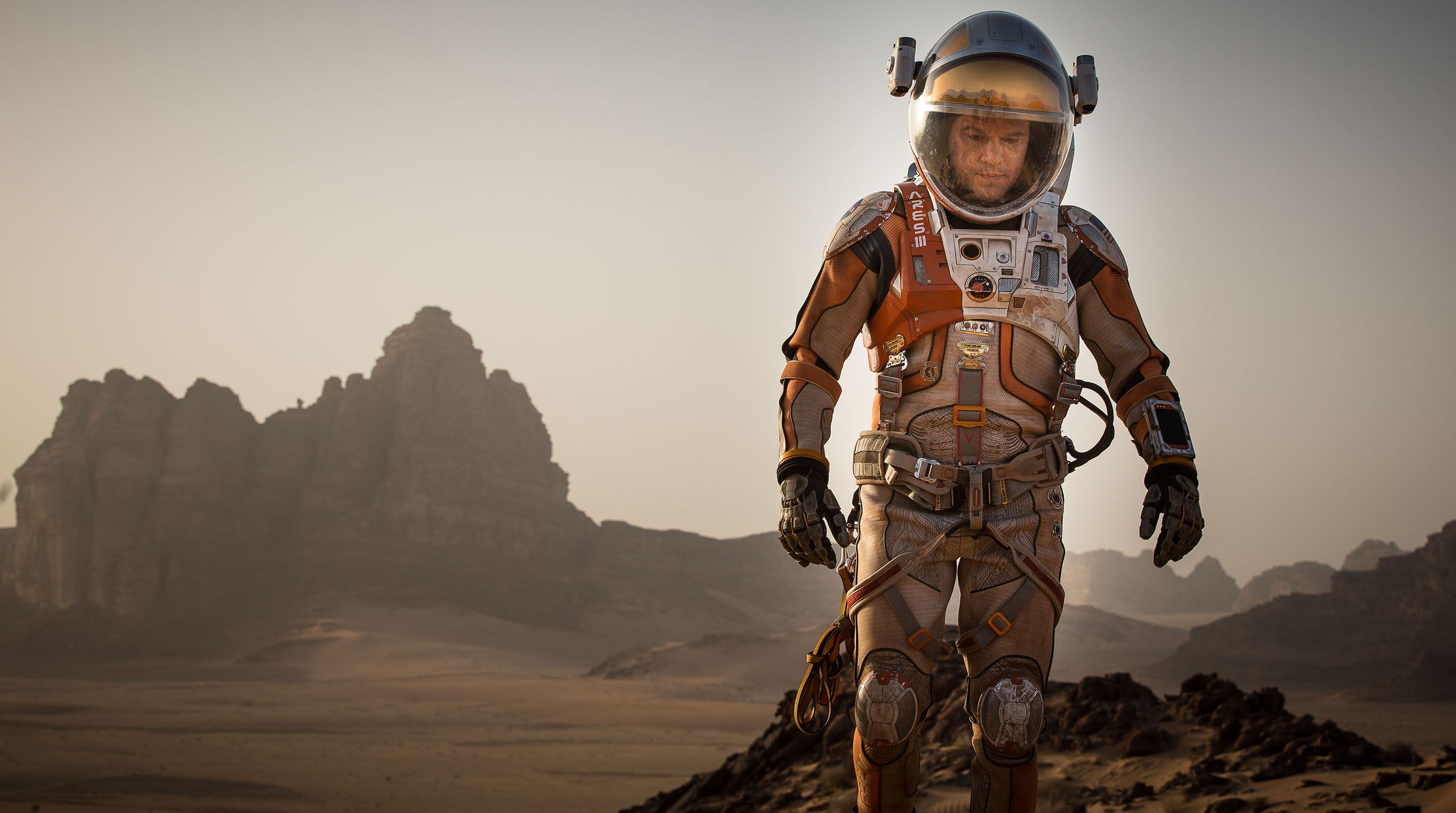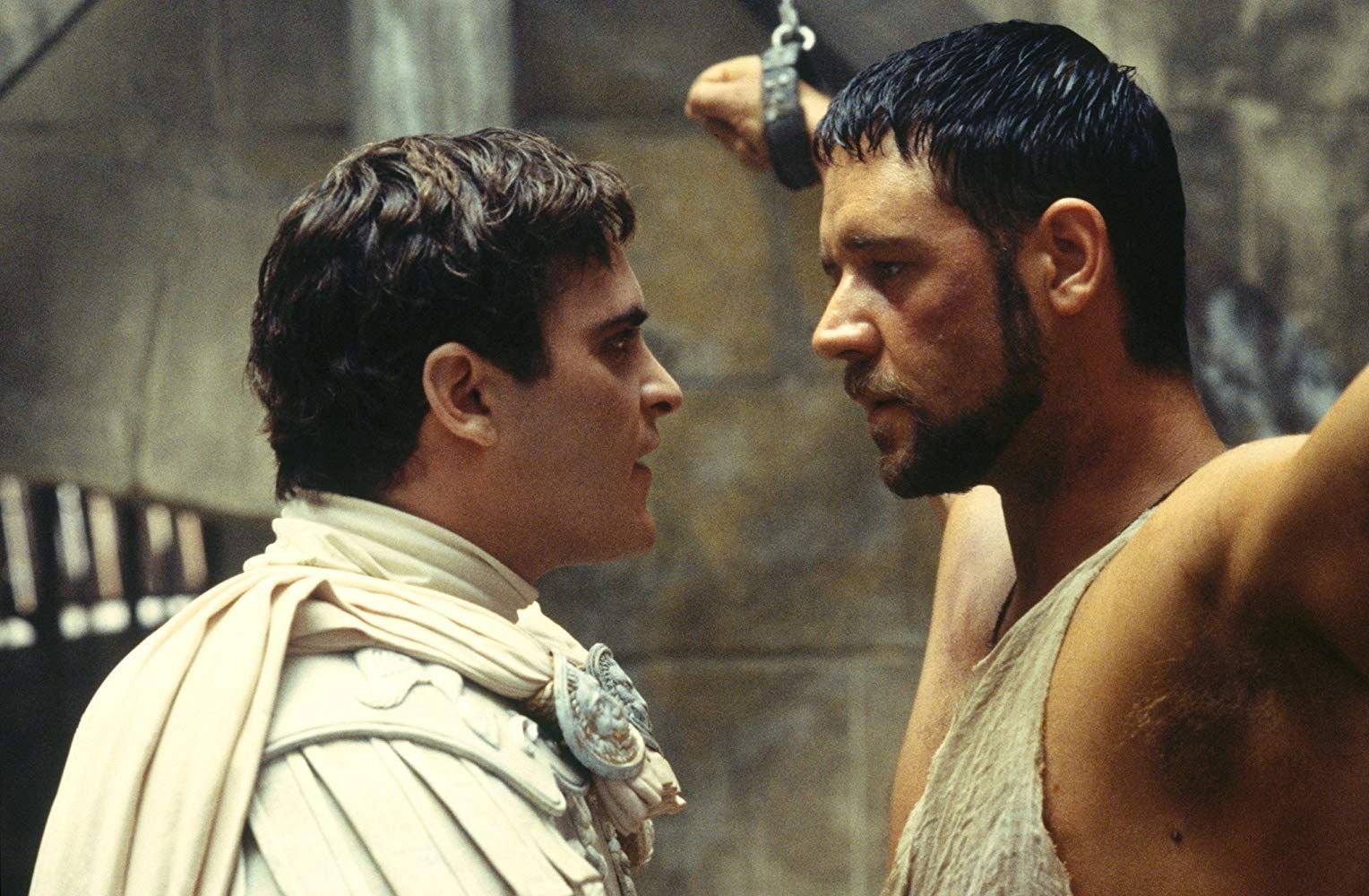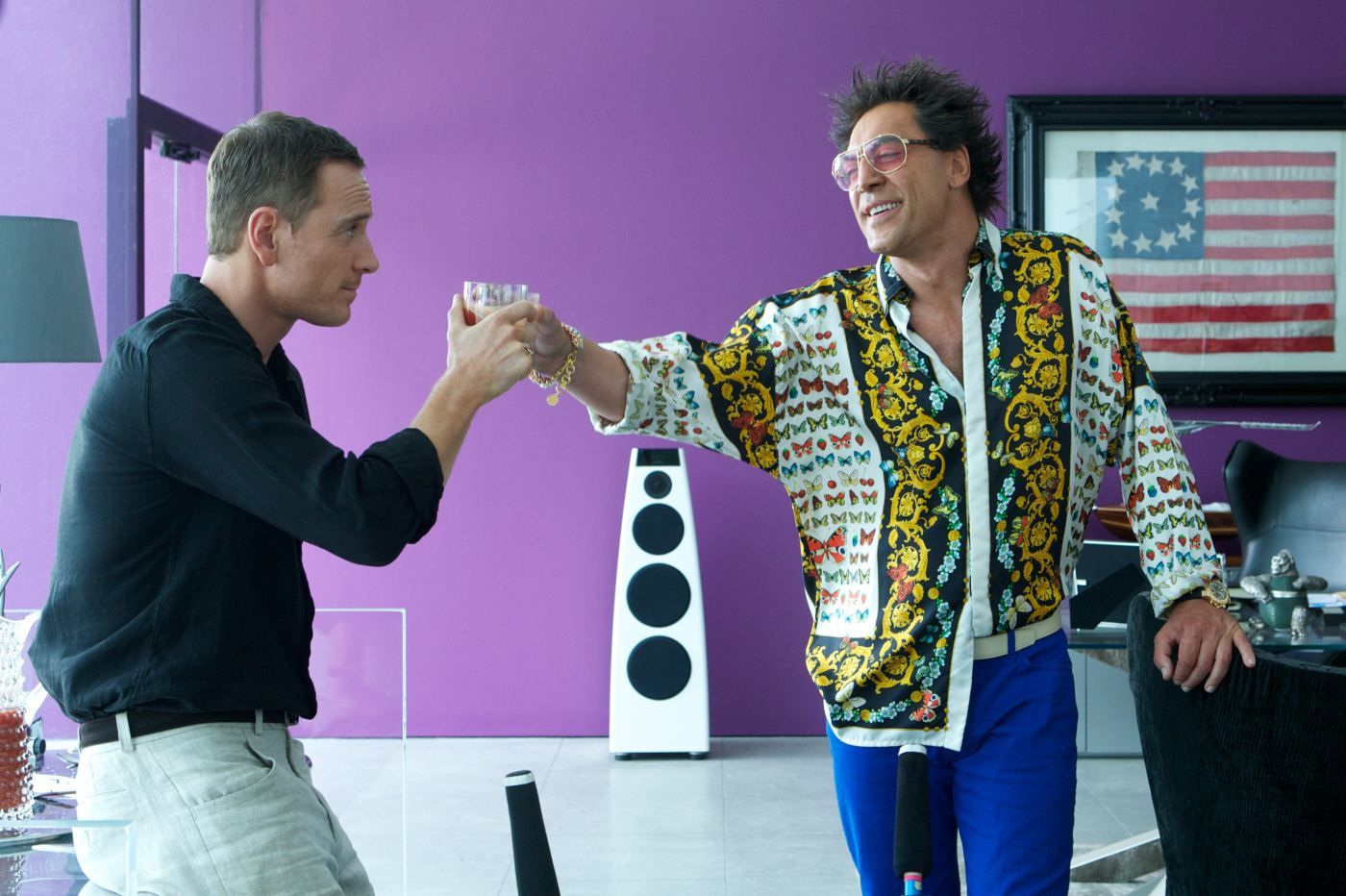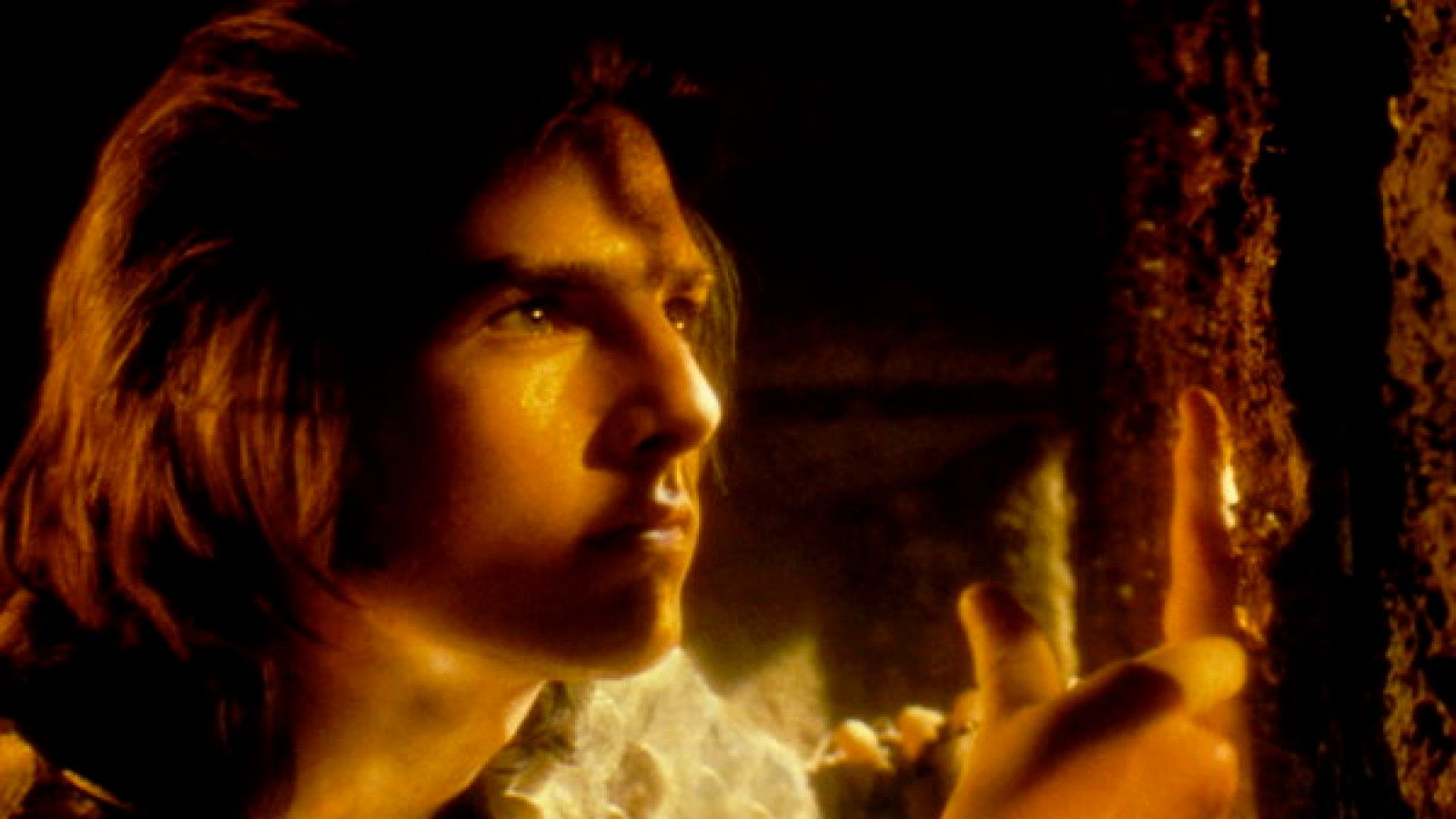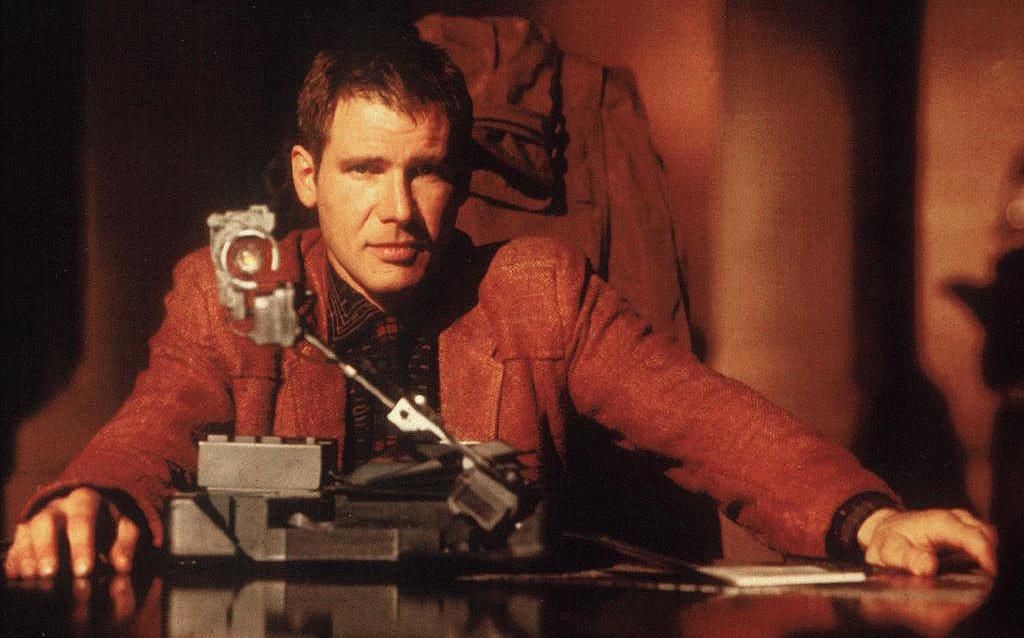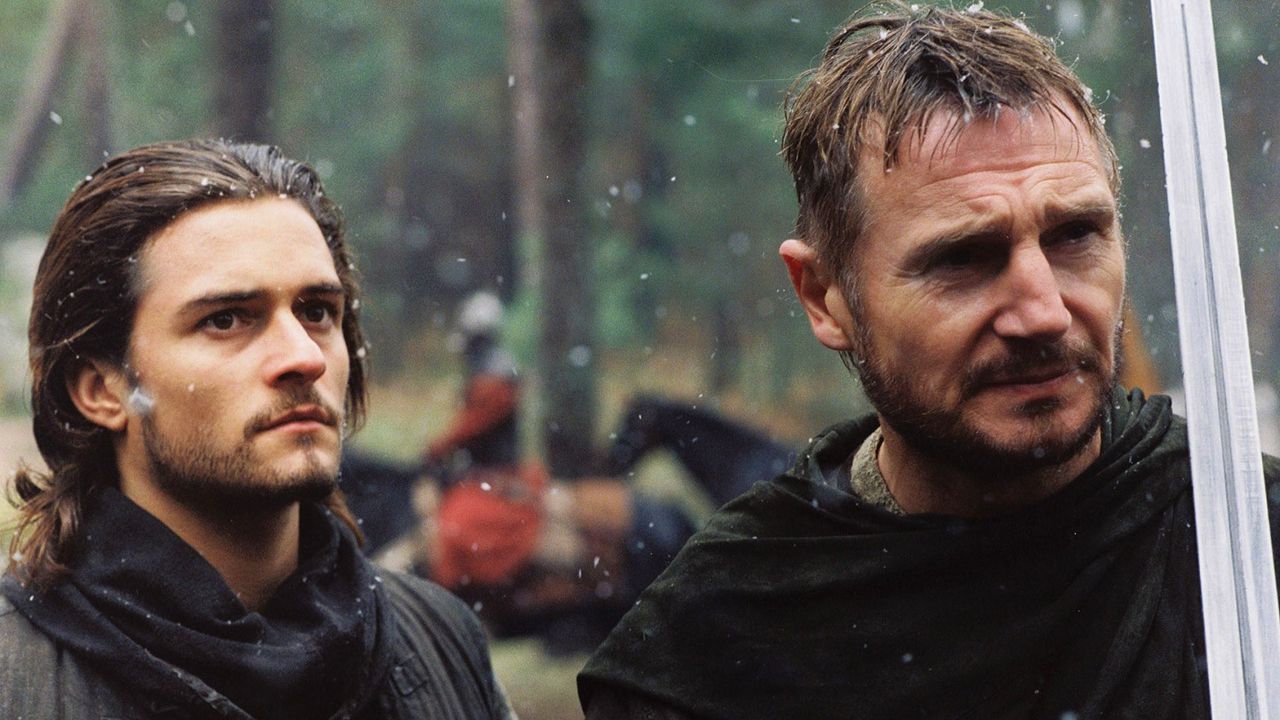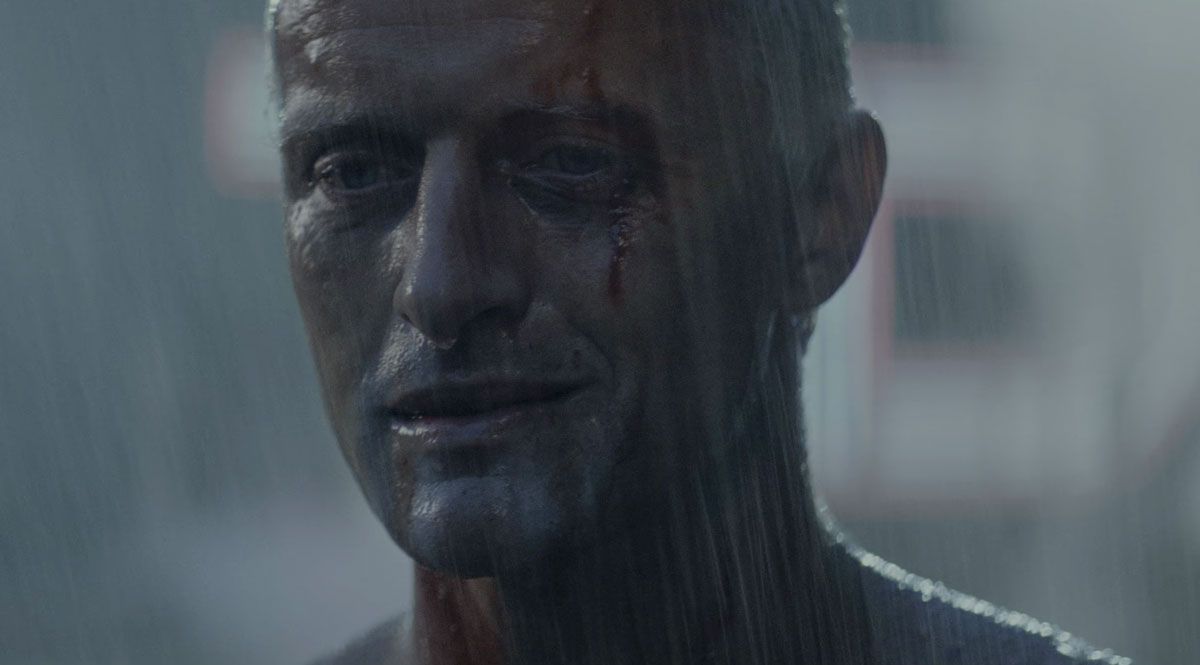In May of 2020, Paramount Home Entertainment released Ridley Scott’s Gladiator in 4K UHD on a disc featuring two versions of the film and boatloads of bonus materials. I’d seen most of the extras, and the movie looks better than ever, but it wasn’t until this release that I realized that an Extended Cut even existed (it was first released back in 2005). But then again, why wouldn’t there be one? After all, Ridley Scott has done more tinkering to his movies - or perhaps more charitably, taken more advantage of the myriad opportunities of home video - than almost any living filmmaker. After all, the saga of Blade Runner, perhaps even more than George Lucas’ death-by-a-thousand-semi-invisible-revisions Star Wars iterations, would seem to define and encapsulate the medium’s possibilities. The film appeared on the cover of Video Watchdog in January 1993, shortly after Scott’s storied “Director’s Cut” debuted in limited theatrical release the year before, and neither that film nor the concept of alternate versions of films for home media releases would be the same.
Regardless, if Scott doesn’t have the most “director’s cuts” or alternate versions of his films in official release, then certainly he should be among the top-ranked contenders. (He has the advantage of a long and varied filmography, as well as considerable success in reshaping his earlier work to great critical and commercial success.) With that in mind, we decided to rank all of these different versions, with a few considerations in mind: What are the differences? Is the alternate cut better than the theatrical version? How does one Extended Edition compare to another? And most importantly, does it change or improve upon the overall effect of the film? Again, these are actual completed versions of his films, not workprints or assembly cuts, and they do not include deleted scenes or extra footage that he decided against or never got around to officially adding to his films (such as the much-ballyhooed, never-realized Prometheus Extended Edition). Mind you, the point isn’t necessarily to relitigate his “lesser” films or remind you about the great ones. And it’s not a ranking or comparison of these movies to one another; I do not think Legend is better than Alien. But whether you’re considering revisiting one, some or all of Scott’s films, or if you’re just curious what you might be missing when that branching option pops up on your DVD copy, this list will hopefully be a helpful guide.
11. Robin Hood (2010, 2010)
Seldom has a project killed enthusiasm for itself before it even went into production, but after working through multiple inventive takes only to settle on something utterly boring and pedestrian, the troubled history of this film seems like it might probably produce a story more interesting than the one told on screen. But as a theatrical experience, even the great Ridley Scott offering a gritty, “realistic” version of Robin Hood is nothing at all to get excited about. It featured Oscar Isaac in inexplicable, distracting blue contact lenses and a performance that runs the risk of being scenery-chewing. The contacts are intact in the Director’s Cut, but even without them, I’m hard pressed to even suggest what would have made this film better at any length. Both versions feel at once unhurried and frustratingly formulaic; the circumstances that lead Russell Crowe’s character to take up the mantle of Robin Hood fall into place with a clockwork precision that feels detectable scenes ahead of time, and a more measured pace doesn’t obscure the obviousness of the pieces locking into place. Thankfully, there’s more of the supporting characters, including William Hurt’s William Marshal, marginalized in the theatrical version, and Lea Seydoux’ Isabella of Angouleme feels (slightly) more like a substantial participant in the drama. But after their great collaboration in Body of Lies, Scott lets the great Mark Strong off the leash a bit too freely, and his Brit-French turncoat villain loses rather than gains dimensionality. A movie that can’t decide whether to be deadly serious or a bit more merry, Robin Hood’s gain in its Director’s Cut is the audience’s loss.
10. American Gangster (2007, 2008)
I’d argue that too many of Scott’s films between 2000 and 2010 feature multiple cuts that simply are not “essential,” but when there’s truly great stuff in even his failures, it’s hard to complain too much about sorting through more material he directed. American Gangster feels like a movie that started as one thing and became another - Jay-Z’s kinda-but-not-really album of the same name hints at that - but the theatrical cut offers a compelling if not altogether memorable (and as even casual research indicates, accurate) look at the corporatization of criminality and the drug trade in the late 1970s. For better and worse, the director’s cut fills in minutiae in a criminal case that was built over years and with small instances of progress between a fastidious cop and a subdued, meticulous drug lord. As good as Russell Crowe and Denzel Washington are in their respective roles, the whole story feels like a junior-league Heat-type showdown that lacks the electricity of its predecessor’s heists - in their place, an acting showcase of who can be more quietly effective. Unsurprisingly, Washington’s moments of merciless, explosive anger are the most memorable in the film. But the actors’ tete-a-tete doesn’t achieve the same level of emotional resonance, so an ending tacked on where Frank Lucas returns to his former neighborhood for a trip down memory lane alongside Richie Roberts doesn’t quite know whether to be resigned, wistful or bemused at what’s changed and what’s stayed the same. That’s kind of the way to feel about the Extended Version, as well.
9. Black Hawk Down (2001, 2006)
Ridley Scott’s follow-up to Gladiator is, in many ways, an absolute marvel of stamina and coordination: his adaptation of this true-life battle in Somalia oozes with panoramic scope and visceral intensity. By all accounts, it’s less effective as a completely faithful chronicle of the events and individuals involved, but that doesn’t lessen his ability to convincingly stage 144 minutes of unflinching battlefield violence - 152 in the Extended Cut. The additions are largely negligible; many are spare shots of characters reiterating the timetable faced by the soldiers while in the heat of battle, trying to escape an increasing onslaught of enemy personnel and weaponry. Certainly not enough material wrestles adequately with the point and purpose of the military’s engagement in the Somalian conflict at that point and the actual difference made. But the movie is a showcase in absolute brutality and it is extremely powerful, almost to the point of becoming exhausting. At 152 minutes, it feels like the Normandy sequence from Saving Private Ryan expanded to a feature unto itself. The theatrical cut spares some of the most gag-inducing moments of violence (some color timed to “pop” less on screen), but the Extended Edition manages to be more overpowering as an experience without enhancing the film’s emotional substance.
8. Alien (1979, 2003)
By Scott’s own admission, the 2003 version of Alien that 20th Century Fox released into studios was primarily a chance for the filmmaker to deliver an alternate cut for the home media market; he calls both this and the 1979 theatrical version “director’s cuts.” At a minute shorter, it’s the rare instance in his filmography of a version of his film not extending the running time. But fully restored and magnificently preserved in increasingly high definition (a 4K arrived in April 2019), the differences in the ’03 version function primarily to create context for the larger franchise - specifically, when Ripley (Sigourney Weaver) finds the bodies of her shipmates while trying to escape the Nostromo. Otherwise, there are some cosmetic adjustments to sound effects and small edits that don’t materially change the viewing experience. Again, however, Scott did actually cut material, which I honestly kind of love - it shows a mercilessness and an honesty about his work (even if the rest of the films on this list work the opposite direction). As such, the 2003 Director’s Cut gets the edge over the theatrical, but just barely.
7. The Martian (2015, 2016)
An adaptation of Andy Weir’s hard-science fiction story of survival and teamwork, Scott’s The Martian now thankfully feels liberated from the “copycat” context of the release of Best Picture winner Gravity, this time with the world’s great minds coming together to rescue stranded astronaut Mark Watney (Matt Damon) rather than leaving him to fend for himself. The theatrical cut of the film is pretty perfect, owing to a fantastic script by Drew Goddard that Scott pared down effectively to the essentials while retaining all of the human, scientific and sociopolitical elements that become, at one time or another, conveyances or obstacles to Mark’s journey. At just about ten minutes, new footage in the Extended Edition gives more detail but doesn’t especially amplify the drama of the shorter cut; there’s more of the various individuals on earth reckoning with the discovery Mark is alive, and the ramifications of communicating and eventually trying to rescue him. What’s good about this material is that it all feels quite believable, from NASA’s mercenary attitudes towards communicating unfavorable messaging about Watney’s death to the juxtaposition between procedure, policy and the human responsibility taken by the team leader (Sean Bean) and Watney’s crewmates to rescue him at all costs. There’s also a digression into Watney’s decision to finish the team’s mission while languishes on Mars which, again, feels superfluous without adding anything to his plight (and actually slowing down momentum as he - and we - grow eager to see him rescued). What’s added to The Martian all feels pretty delightful but inessential; but in a movie this charming, who doesn’t mind spending a few more minutes together?
6. Gladiator (2000, 2005)
There’s something absolutely fascinating about the disparity between critics like Roger Ebert’s lukewarm reaction at the time to Gladiator and its eventual massive wins at the Oscars and elsewhere. They all feel right - it’s big technological spectacle and also a completely engaging, emotional adventure featuring fantastic performances. The Extended Edition only further emphasizes both its virtues and shortcomings. With a total of an extra 15 minutes of footage sprinkled throughout the film, the first two hours chug along languorously like a series of very good episodes of Game of Thrones - not just the machinery of the plot coming together, but a real sense of character for Commodus (Joaquin Phoenix), the politics of the era, the relationship between Maximus (Russell Crowe) and Marcus Aurelius (Richard Harris) that causes so much death and disharmony, and most of all, some show-stoppingly powerful speeches by British thespians like Harris and Derek Jacobi who know so well and thoroughly what they’re saying that the emotional impact, whether it’s one life or the fate of Rome at stake, feels devastating. But by comparison, the build-up to the showdown between Maximus and Commodus in the Colosseum in the third act becomes sort of episodic, and even rushed, while the pieces of Commodus’ treachery begin to lose their dramatic weight. Ultimately, I’d argue that the Extended Edition feels like it’s for people who take the film seriously - or who want to - while the theatrical cut is more of a rousing, superficial crowd-pleaser. In which case, it’s superior, but not quite “definitive.”
5. The Counselor (2013, 2013)
Based on Cormac McCarthy’s first spec script, The Counselor came out of the gate like a bronco that was never going to be successfully tamed. But this story of a cartel lawyer who brokers a deal that promptly destroys his career, his life and everyone around him is strangely better as a meandering, meditative descent into hell rather than any sort of crime thriller - or real story of any kind. Scott adds 20 minutes to its runtime for the Extended Edition, refusing to abbreviate McCarthy’s reams of cryptic, philosophical dialogue as Michael Fassbender’s title character discovers the Faustian bargain that he’s struck as it explodes outward, slowly and painfully. Scenes like Cameron Diaz’ self-gratification atop the windshield of Javier Bardem’s Ferrari play less like bizarre asides and more appropriately like macabre diversions from the slowly encroaching truth that none of the characters can escape, and lend a melancholy incomprehensibility to circumstances that they can no longer fully understand than they can slow down. For sure, the movie is not for everyone - it’s not even for every Ridley Scott fan - but as a bleak treatise about accepting the downward spiral of accountability after realizing you shouldn’t have made the choices that led to them in the first place, the Extended Edition feels absolutely essential to communicating all of the ideas contained inside that its “story” does not.
4. Legend (1985, 2002)
Aside from Blade Runner, Legend remains the most significant instance (that we know of) where Scott’s vision as a director was compromised when the film first went into theaters. The difference between the 94-minute theatrical version and the Director’s Cut is not just a matter of almost 20 minutes of footage. It’s a pretty remarkable improvement on a movie which, honestly, is not very good. Watching the two of them back to back, the theatrical version actually feels longer; Tangerine Dream’s score feels emblematic of the era in which the movie was made - keyboards standing in for proper string arrangements, creating a plastic reality that betrays the storybook subject matter - and the plot is absolutely anemic. Shots seem to run on forever without much purpose. The Director’s Cut, on the other hand, has much stronger dramatic momentum from the very first scenes. All of the characters seem to have more identity, and agency. Jerry Goldsmith created a more traditional score that also shapes the story so you feel atmosphere and emotionality even in scenes that seem to exist mostly to marvel at production design. Legend ultimately is best described as an “at that age” movie - if you saw it as a kid, then your affection for it may be stronger. But the superior cut is the Director’s Cut, indisputably, which really brings its best qualities into sharper focus.
3. Blade Runner: The Final Cut (1982, 2007)
I don’t mean to damn the Blade Runner Final Cut with faint praise because its strides during the heyday - and possibly waning days of home video bonus materials - are significant, and quite frankly historic, but given the legacy of the film by that point, and the role of the ’92 Director’s Cut in legitimizing the process of revisiting older films to make more sense of them technically and artistically, remains unparalleled. Working with longtime collaborator Charles de Lauzirika to uncover original footage by the literal pallet for restoration, Scott breathed new life into the film yet again - and that’s before de Lauzirika actually went and reshot material to make a handful of scenes clearer, more effective, and I daresay better. (He managed to create an opportunity to sync the sound in one scene that had never fit, and in another, enlisted Joanna Cassidy to reprise her role in the film to make a stunt sequence, well, look like it was her performing it.) Additionally, the affectionate transformations and clean-ups - such as the parting shot of a dove flying heavenward as an embodiment of Roy Batty’s departing spirit - make subtle but substantial improvements. This is absolutely the most complete version of the film. It’s also probably the only one I’ll ever watch again. It’s a credit to Scott, de Lauzirika and Warner Home Video for devoting the time and resources to doing it right. But as a whole I would argue that the impact on the film - the transformation - is lesser than the ’92 Director’s Cut.
2. Kingdom of Heaven (2005, 2005)
With almost an hour of additional footage, maybe it’s unsurprising how much of a difference there is between the theatrical and Director’s Cut of Kingdom of Heaven. But the theatrical cut doesn’t even qualify as a cliff’s notes version of its longer iteration; it’s virtually unwatchable, except perhaps as a showcase for Orlando Bloom’s post-Lord of the Rings stardom. Consequently, I can understand why people wouldn’t even give a longer version of it a chance. But even if I’m not sure it improves significantly enough to deserve a Best Picture nomination (a declaration I breathlessly made when I saw it in late 2005), the Director’s Cut is not just a different film, but a significant artistic achievement. After the theatrical cut excised details small and large (for example, the priest Bloom’s character kills early in the film, setting in motion his exodus to Jerusalem, is his brother), the Director’s Cut portrays a hero’s journey born of loss and vulnerability against a backdrop of tremendous political unrest - ideas that then and now are rich with relevance to the modern-day world.
Bloom’s slightness in the failed star vehicle of the theatrical version is a strength in the “everyman caught up in circumstances larger than him” saga of the Director’s Cut - what makes him exceptional is not that he’s another Gladiator-style Maximus thrust unwittingly into a foreign political arena, but a young man stricken by loss, and the convergence of circumstances that enable his innate patience and humility to shape him as a leader among equals. Meanwhile, Scott better foregrounds Eva Green’s Sibylla, a woman used as a bartering chip between father and future husband, fighting for autonomy and control of her son in the face of significant adversity (and a tragic choice only she could make). Like Black Hawk Down, a cast of all-stars (many of them yet to become marquee names) enjoy more time to flesh out supporting but pivotal roles. But this Director’s Cut offers the most vivid “transformation” of any of Scott’s films, and qualifies among the best Director’s Cuts ever assembled, even if (like, well, Blade Runner) it’s not the most historic.
1. Blade Runner (1982, 1992)
Of course there were Director’s Cuts before 1992, but what film has ever more vividly captured the spirit of home video as a forum for filmmakers’ visions in the wake of commercial failure? If you’re of a certain age, you can probably remember the videocassette box featuring “WIDESCREEN” atop it like an assault on the top and bottom of your television screen and subsequently reminding you what all films looked like before they were cropped for television. The ’92 Director’s Cut virtually erased the existence of the Blade Runner theatrical cut overnight, seeming to answer lingering questions while asking provocative new ones. Even if making Harrison Ford’s voiceover flat and ham-fisted was the point, it changed the musicality of the film - the ambient space for audiences to explore whether or not the “plot” was driving towards some sort of resolution. Removing that, inserting the “unicorn dream” shot (which importantly was not simply an outtake from Legend), dropping a phony happy ending, and making other adjustments radically transformed this into the true masterpiece it always was meant to become. It preceded the era of “darker” becoming some kind of phony synonym for “better,” leaning into ambiguity and danger and mystery to generate a sense of possibility - to make audiences lean closer, to speculate, and to wonder. For better or worse, this is the definitive Director’s Cut by which virtually all of them should be judged - Scott’s or anybody’s - and I’d argue that its restoration, particularly at that moment in his career, truly confirmed his status as a true auteur and visionary.

